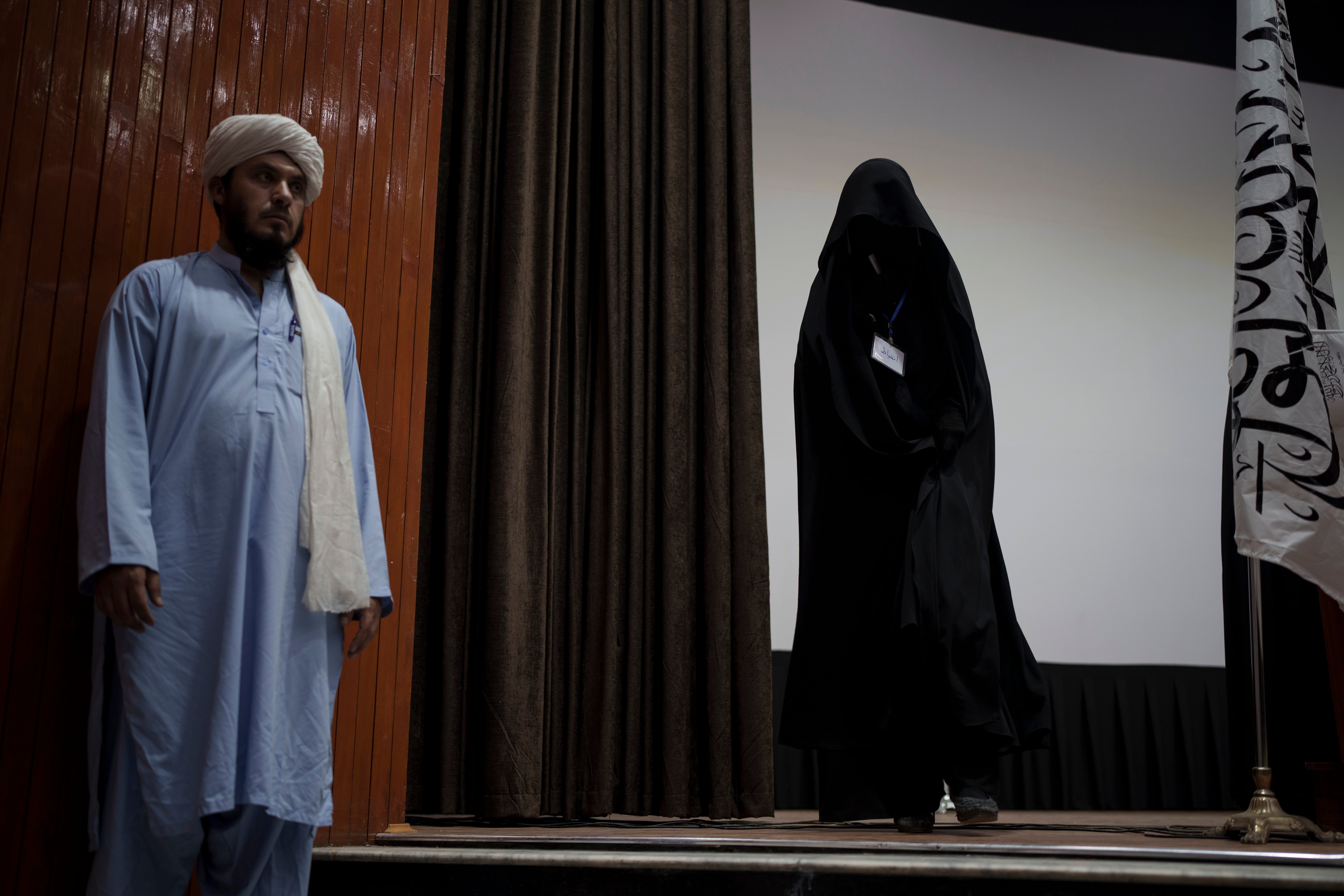‘Islam first’: New Taliban chancellor for Kabul University says women barred till ‘real Islamic environment’ is in place
Ghairat has in the past called schools ‘centres for prostitution’ and justified killings of journalists

Your support helps us to tell the story
From reproductive rights to climate change to Big Tech, The Independent is on the ground when the story is developing. Whether it's investigating the financials of Elon Musk's pro-Trump PAC or producing our latest documentary, 'The A Word', which shines a light on the American women fighting for reproductive rights, we know how important it is to parse out the facts from the messaging.
At such a critical moment in US history, we need reporters on the ground. Your donation allows us to keep sending journalists to speak to both sides of the story.
The Independent is trusted by Americans across the entire political spectrum. And unlike many other quality news outlets, we choose not to lock Americans out of our reporting and analysis with paywalls. We believe quality journalism should be available to everyone, paid for by those who can afford it.
Your support makes all the difference.The new Taliban-appointed vice chancellor for Kabul University announced on Monday that women would be indefinitely barred from the institution till a “real Islamic environment” is in place.
“I give you my words as the chancellor of Kabul University as long as real Islamic environment is not provided for all, women will not be allowed to come to universities or work,” Mohammad Ashraf Ghairat wrote on Twitter. "Islam first," he said.
In a previous tweet posted on 26 September to address the shortage of women teachers, Mr Ghairat had said: “We are working on a way that male teachers will be able to teach female students behind the scenes in the classroom, thus creating an Islamic learning environment for women.”
Last week, the Taliban sacked PhD-holder Muhammad Osman Baburi as the head of Afghanistan’s premier university and replaced him with Mr Ghairat, who has lesser academic experience and holds a BA degree, leading to widespread criticism.
The 34-year-old has in the past reportedly called schools in the country “centres for prostitution” and justified the killing of “spy journalists” last year.
At least 70 members of the teaching staff have resigned since Mr Ghairat’s appointment.
Mr Ghairat’s latest statement is in line with the tenets of the Taliban’s previous rule between 1996 and 2001, when women were not allowed to step out in public without a male companion. Enforcing strict Sharia law, the Islamist militants had forbidden Afghan women from working and attending school.
This time, however, the Taliban is facing pushback from women, who have been participating in protests demanding that they get to keep their government jobs. Journalists covering one such protest march in Kabul in early September were whipped and detained by the militants.
“We heard some of these explanations in 1996 to 2001, when the Taliban said that the reason girls couldn’t study and women couldn’t work was because the security situation wasn’t good, and once the security situation was better they could go back. Of course, that moment never arrived,” Heather Barr, associate director of Human Rights Watch, told The Guardian.
Abdul Baqi Haqqani, the higher education minister in the new Taliban government, announced on 12 September that women could study in universities where classrooms are gender-segregated. Women were told to wear Islam-appropriate clothes.
“We will not allow female and male students to study in one classroom. Coeducation is in opposition to Sharia law,” Mr Haqqani had said.
Join our commenting forum
Join thought-provoking conversations, follow other Independent readers and see their replies
Comments